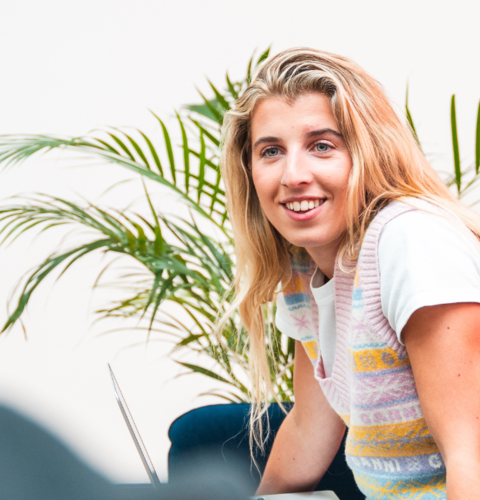We understand the importance of hiring the right talent. A successful job interview is a two-way street.
It's your chance to assess a candidate's fit for the role while also allowing them to learn more about your company and culture.
But how do you ensure a smooth and productive interview that leads to a great hiring decision?
In this blog, we will guide you through everything you need to know to conduct a successful job interview:
What are the main aspects of a job interview?
A well-structured interview has several key aspects that all contribute to a successful outcome:
Setting the stage.
The environment you create significantly impacts the candidate's experience. A clean, professional space with comfortable seating sets a welcoming tone. Minimise distractions by turning off phones and letting colleagues know you'll be unavailable. Offer the candidate a drink to put them at ease, and ensure they feel comfortable and ready to begin the interview.
Company overview.
Don't assume the candidate knows everything about your company. Briefly introduce your organisation, its mission, its values, and what makes it a great place to work. This context will help the candidate understand how the role they're interviewing for fits into the bigger picture.
Exploring the role.
Take some time to delve into the specifics of the position. Discuss the day-to-day responsibilities, the projects the candidate would be involved in, and the key performance indicators (KPIs) used to measure success.
Assessing the candidate.
This is the heart of the interview process. Through a variety of questions and scenarios, you'll be evaluating the candidate's skills, experience, and cultural fit. Look for evidence of the qualifications outlined in the job description, but also assess their problem-solving abilities, soft skills and communication skills, and how they might integrate into your existing team dynamic.
Learning about the candidate.
The interview shouldn't be solely focused on your questions. Provide ample opportunities for the candidate to ask questions about the role, the team, and your company culture. This allows them to assess if the position aligns with their career goals and helps you gauge their level of interest and enthusiasm.
How to prepare to interview someone for a job.
Preparation is paramount for a successful interview. By taking the time to get organised beforehand, you can ensure a smooth and productive conversation with the candidate.
Know the job inside out:
Familiarise yourself with the job description.
Don't rely on memory alone. Refresh your understanding of the specific skills, experience, and qualifications required for the role.
Determine the skills and experience required.
Go beyond the bullet points in the job description. Identify the essential qualities and competencies that will make someone successful in the position. Consider the specific challenges and tasks associated with the role and what skills and experiences would be most beneficial in overcoming them.
Review the job description and candidate qualifications.
Match the candidate's CV and cover letter to the job requirements. Identify areas where their skills and experience directly align with the needs of the role and make a note of any questions you might have about potential gaps.
Plan your interview strategy:
Prepare a variety of effective interview questions.
Avoid a monotonous list of generic questions. Develop a mix of open-ended, situational, and behavioural questions.
Open-ended questions like "Tell me about a time you faced a challenge" allow the candidate to elaborate on their experiences. Situational questions like "How would you handle a difficult customer?" help you assess their problem-solving abilities.
Behavioural questions focusing on past actions like "Describe a time you demonstrated strong teamwork skills" give valuable insights into how they might behave in similar situations within your company.
Anticipate common candidate questions.
Be prepared to answer questions about your company culture, the team environment, professional development opportunities, and the next steps in the hiring process. Having well-prepared answers demonstrates transparency and professionalism.
Schedule pre-interview preparation time.
Block out dedicated time in your calendar to gather your thoughts, review candidate materials, and prepare your questions. This focused preparation will ensure you enter the interview feeling confident and organised.
Create a positive interview environment:
Prepare the interview format.
Decide if the interview will be one-on-one, a panel interview, or a combination of both. Prepare a concise company overview of your company's mission, values, and work environment that highlights what makes your organisation a great place to work.
Practice your company pitch.
A captivating and informative pitch delivered with enthusiasm will leave a strong first impression on the candidate and give them a clear picture of your company culture.
Fight your bias.
We all have unconscious biases. Be aware of yourself and actively strive for objectivity during the interview process. Focus on the candidate's qualifications and how they align with the job requirements, rather than making assumptions based on irrelevant factors.
Seek recruitment advice/expertise.
Recruitment agencies like Digital Waffle can offer valuable guidance and support throughout the entire interview process. We can assist with crafting interview questions, conducting pre-interview skills assessments, and even providing interview training for your hiring managers.
How to conduct a job interview.
Now that you're prepared, let's dive into the actual interview:
Welcome the candidate and introduce yourself.
A warm and professional greeting sets the tone for the interview. Make eye contact, smile, and introduce yourself and any other interviewers who will be present.
Briefly explain the interview process.
Outline the flow of the interview, including the types of questions you'll be asking and how long the interview will take. This helps the candidate feel comfortable and prepared.
Dive into the role and the company.
Provide an overview of the position's responsibilities and the company culture. This is your chance to sell the role and your organisation to the candidate.
Take notes.
Throughout the interview, jot down key points from the candidate's responses. This will be helpful for later evaluation and comparison with other candidates.
Start with more general questions.
Ease into the interview with open-ended questions to get the candidate talking about their background and career goals.
Assess the candidate’s skills and experience.
Use your prepared questions to delve deeper into the candidate's qualifications and past experiences. Focus on specific examples that demonstrate their abilities and how they might apply those skills to the role you're offering.
Explore the candidate’s background.
Go beyond the CV. Ask questions about their interests, motivations, and what attracted them to the position. This can help you assess their cultural fit and overall enthusiasm for the opportunity.
Give the candidate an opportunity to ask questions.
This is a two-way street. Allowing the candidate to ask questions shows transparency and gives them a chance to learn more about the role, the team, and your company culture.
Discuss the next steps.
Outline the timeline for the hiring process and what the candidate can expect next. Even if you're not moving forward with them, it's courteous to let them know.
Thank the candidate and end the interview.
Express your appreciation for their time and professionalism.
By following these steps and remaining well-prepared, you can conduct successful job interviews that identify the best talent for your company. Remember, a positive interview experience reflects well on your business and can make all the difference in attracting top candidates.
Looking to hire talent and need support? Not to worry, we’ve got you covered. Get in touch with us today. One of our specialist consultants will then be in touch with you shortly to discuss your specific requirements in a bit more detail.

.png)




.png)

